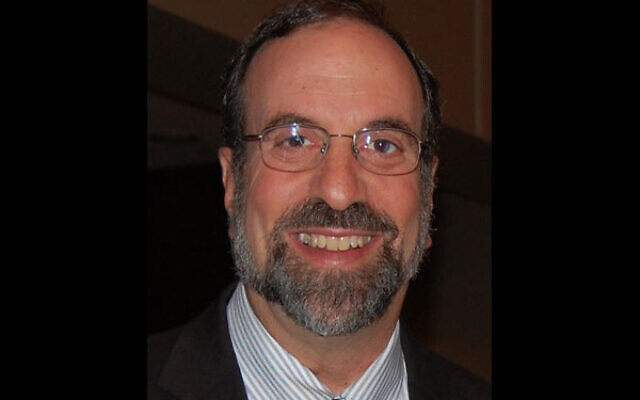A Reflection on Last Week: Where Do We Go Now?
Former senior rabbi of Ahavath Achim Synagogue offers Jewish takeaway from capitol protests.
Rabbi Neil Sandler is the senior rabbi at Ahavath Achim Synagogue.
Although it has been some time since I last stood at (now) Truist Park for the national anthem that precedes a Braves ball game, I vividly remember my usual action/reaction. I focus on the American flag just past the outfield, and I well up with pride.
Strange, perhaps, yet moments like this one evoke pride and gratitude in me. The words, “The greatest democracy in the world” invariably come to mind. After last week’s desecration of one of our nation’s “holiest” buildings, the U.S. Capitol in Washington, D.C., I have grave doubts. Now, as the pain resulting from what we witnessed begins to lessen, it is time to ask, “And now what?” We ought not direct that question solely to those who serve our country. The answers will only be lasting if we also direct the question to ourselves. When we do so, I think our rabbinic tradition will provide us with healing and hopeful guidance.
Here is a well-known Mishnah found in Pirkei Avot 5:17:
Every argument that is [for the sake of] heaven’s name, it is destined to endure. But if it is not [for the sake of] heaven’s name – it is not destined to endure. What [is an example of an argument for the sake of] heaven’s name? The argument of Hillel and Shammai. What [is an example of an argument not for the sake of] heaven’s name? The argument of Korach and his followers.
What is the difference between the arguments of Hillel and Shammai that are worthy/for the sake of heaven and those of Korach and his followers that are not worthy/not for the sake of heaven? Rabbi Menachem Meiri’s commentary in the 13th century is instructive:
In (the Hillel/Shammai) debates, one of them would render a decision and the other would argue against it, out of a desire to discover the truth, not out of cantankerousness or a wish to prevail over his fellow. An argument not for the sake of Heaven was that of Korach and his company, for they came to undermine Moses, … out of envy and contentiousness and ambition for victory.
The Talmud itself reinforces Rabbi Meiri’s view. Hillel and Shammai had strong disagreements, yet they respected each other, and their students even loved each other. But Korach and those who joined him in rebellion? They acted only on their own interests and rejected Moses’s leadership because of their “ambition for victory.”
I hear our Talmudic and medieval rabbis speaking to us and our leaders today. These are among the things I hear them saying:
1. When we turn toward the other, especially one in which we might be tempted to recognize an enemy, we ought to strive instead to recognize the reflection of God that stands before us.
2. In speaking with people, especially with those with whom we disagree, we should not strive to show how ridiculous we think this individual’s argument is or to prevail over him/her. Instead, we ought to seek to listen and share. We ought to share our truth and listen to the other person’s truth if it is different than our own.
3. We ought to strive to foster understanding amid disagreement and to constantly reflect respect for each other as we interact.
4. We ought to conduct ourselves in a way when, even amid the expression of strong disagreement, we do nothing to knowingly harm others or act in ways that will create a barrier between us now and in the future.
Finally, the Mishnah in Pirkei Avot and Rabbi Meiri’s reinforcement of it set up a dichotomy between those whose words and intentions are for the sake of heaven and those whose words and intentions are otherwise. But most of us, along with our leaders, have some Hillel/Shammai in us, and some Korach. Our task and the demand we ought to make of our leaders is to give expression to the “heavenly” side. We should pay attention to the “unheavenly” qualities in us and alter them. Similarly, we must take note of these potentially harmful qualities when our leaders express them and let them know we expect and, even, demand better of them.
As we continue to confront challenging times in the life of our country, I pray that those who serve us will act to restore the confidence and pride we take in “the greatest democracy in the world.” And I pray that our own actions and interactions, especially with those we share strong disagreement, will always reflect the wisdom of Hillel and Shammai, interactions that are “for the sake of heaven” and worthy of God’s presence.
Rabbi Neil Sandler is the former senior rabbi of Ahavath Achim Synagogue.




comments